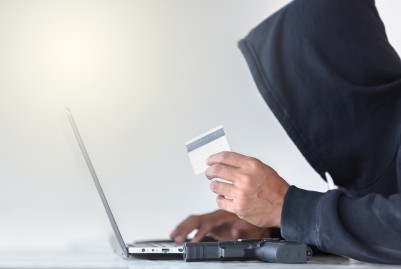Credit card fraud can occur in a number of ways. Your card could be lost or stolen, and thus be used to buy goods and services. A criminal could also obtain your card number and expiration date, and use this information to make purchases over the phone or online. Also, criminals could traffic the terminals to retailers in order to obtain the information stored on the card and make a forgery. You could find that your account has been debited a large sum of money, without your knowledge. In this case, someone has probably stolen data from your credit card or other pieces of data relating to you.
The two most common forms of credit fraud are:
- Fraudulent use of your credit card – Did you lose your credit card? Was it stolen? Did you leave your credit card data on unreliable websites? In this case, someone may make purchases on your account or withdraw money from your account;
- Someone pretends to be you – Someone was able to get your personal data (address, bank details, pay slips, etc.) and can then use it to claim a credit in your name, or even take/transfer large amounts of money from your accounts. If the bank does not realize it, they could put through all of their fraudulent transactions.
But fortunately, you can protect yourself by adopting some simple habits.
How to protect yourself and avoid getting data into the wrong hands:
- Sign your new credit card as soon as you receive it.
- Never share your credit card information with another person.
- Never enter your PIN code – Memorize it. Do not give it to anyone; make sure that nobody can see it when you type it on the keyboard of the payment terminal. Avoid obvious PIN codes, such as your birthday or 1111, 0000.
- Have your credit card blocked immediately after you lose it, or it is stolen.
- Use the chip. Replace your magnetic stripe cards with integrated chip cards as they offer more security.
- Only pay online merchant websites whose domain name is protected by a small padlock. If you have any doubts, search Google for this merchant, or check with friends and family first.
- Never provide credit card data or codes through email.
- If you pay abroad with your credit card without having to enter the PIN code, do not lose sight of your card for a single moment. Ask the merchant if you can watch them perform the transaction in front of you. Because if they hide the card, they can quickly, without your knowledge, copy all the data on the card to use fraudulently later.
- Make sure that no one can copy your personal documents (ID card, payslips, bank statements, driver’s license, etc.). Identity thieves could use it. So, when you’re done with them, shred the documents.
- Never leave your wallet or purse unattended;
What to do if you are a victim of credit card fraud
If any transactions you have not made have been charged to your card or if you believe your credit card number is in the hands of someone it shouldn’t be, contact your credit card issuer immediately. The issuer of your card will take appropriate measures to protect you against fraud.



